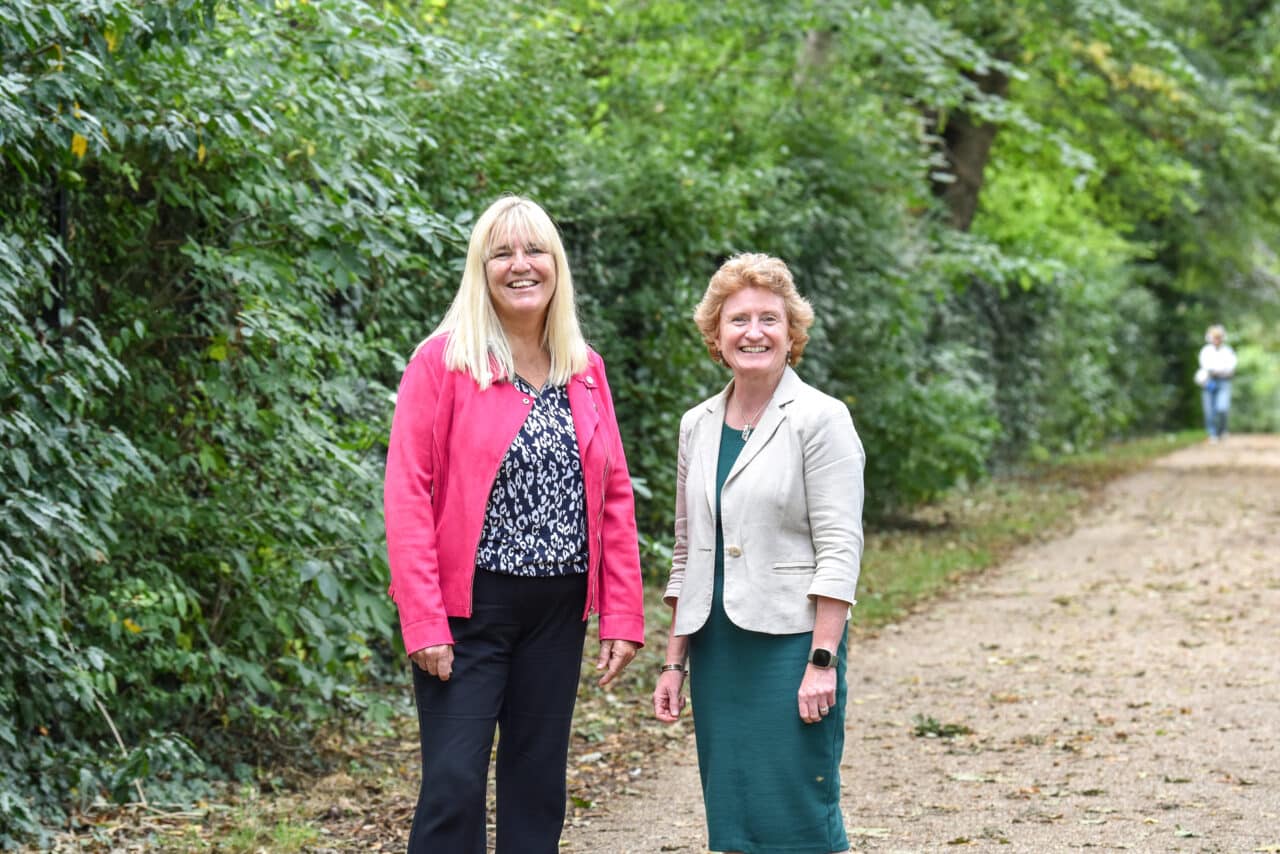Embracing Engineering
When you have been a headteacher as long as I have, you begin to realise that you are repeating yourself. Some things, I would argue, bear repeating.
Back in 2014, in my fourth year at Headington, I wrote a plea to girls – not just those studying here, but in schools everywhere – to ask them to seriously consider Engineering as a career. Now, eight years later, I am going to reiterate that call.
We have some great scientists of the future studying here. They demonstrate all the right skills and qualities to pursue a career in Engineering. And yet, we still see many of those ‘science-minded’ young people opting for Medicine over alternative careers within the Sciences. There is nothing wrong with that, per se – Medicine is an excellent career choice for many – but where the frustration lies is with the number of young people for whom the field of Engineering would be a far better fit. I suspect I myself was once among them.
At school in Oxfordshire, I had exactly the right profile for Engineering – strong in Physics and Maths with, I think, the right kind of brain to tackle the sort of problems I would have encountered in Engineering. And yet it was never mentioned as an option. Instead, I read Geology at university, then worked in the commercial sector for a number of years before retraining as a teacher and pursuing a career in education. While I do not regret the path I chose, which has been infinitely rewarding and challenging, I can’t help but wonder what might have been had I had the opportunity to explore the varied and exciting career possibilities in this area.
The number of girls taking Physics to A Level remains pitifully low, with less than one in four of those taking A Levels being female. That proportion has barely moved this century and many schools won’t have a single girl taking terminal qualifications in Physics. In all girls’ schools, we see higher numbers, with 15 per cent of this year’s Lower Sixth cohort at Headington choosing the subject. Girls do really well in these subjects, too, outperforming boys not just in Physics but in every STEM subject with the exception of Chemistry. Very few girls then go on to study the subject at university, although I am delighted to report that we do have a steady stream from Headington going on to study Engineering degrees each year (five in 2022, six in 2021). When we look at the Engineering workforce, there has been a pleasing rise over the past decade, with now 16.5 per cent of engineers being female, a six percentage point increase since 2010. But take a step back from those figures and it’s clear that the profession at all levels continues to be male dominated.
There continues to be something of an image problem when it comes to Engineering. Ask young people to draw an engineer and inevitably they will depict a man – if they even clearly understand what an engineer is at all. Engineering is a vast field with innumerable career opportunities, from Biomedical Engineering, to Mechanical Engineering, from Aeronautical Engineering to Civil Engineering. These are all hugely different fields, offering different challenges and opportunities. A tiny proportion of engineers working in construction are female (less than five per cent) compared with 11 per cent working within water supply, sewerage and waste management. It appears to be easier to recruit women into roles in industries not traditionally associated with Engineering.
One of the most important ways to get girls to consider Engineering as a possibility is to simply make them aware of it. Studies show that there is a significant uptick in girls’ attitudes towards engineering and STEM as a possible career path when they are exposed to female role models. Here is where at Headington we are, I feel, making some important strides.
The speaker at last year’s graduation ceremony was the highly impressive Ella Podmore MBE, IET Young Woman Engineer of the Year 2020 and a Materials Engineer in the automotive industry. She’s also a Headington alumna. This year, she returned to school for a whole day focusing on Automotive Engineering, bringing with her a supercar from McLaren, working with girls of all ages on various projects. She really brought the subject to life – and made it seem like a real and accessible career. The School was abuzz with excitement and many of our girls were truly inspired by her example.
As they progress in their careers, we will continue bringing in former Headington girls who have pursued this profession to help inspire the next generation and share their knowledge and expertise, along with more established experts. There are so many fascinating careers out there in this field – Engineering is a well-paid profession and the UK needs more engineers than currently qualify each year.
I am not dismissing those for whom Medicine is a vocation – our Medics programme is highly successful and for some of those girls this is something they have wanted to do for as long as they can remember. My own niece, a Headington alumnae, is successfully coming to the end of her five years of training and for her it was absolutely the right choice. I am instead addressing those who are great at Science and Maths, but drift into Medicine because it seems like it is expected. It is a good option – but for many there could be one which better suits their skills, temperament and interests. Will I still be banging this drum in another eight years? I am sure I will feel no less passionate about it but I truly hope that the slow, steady rises will continue and I will no longer feel a call to arms is necessary.



